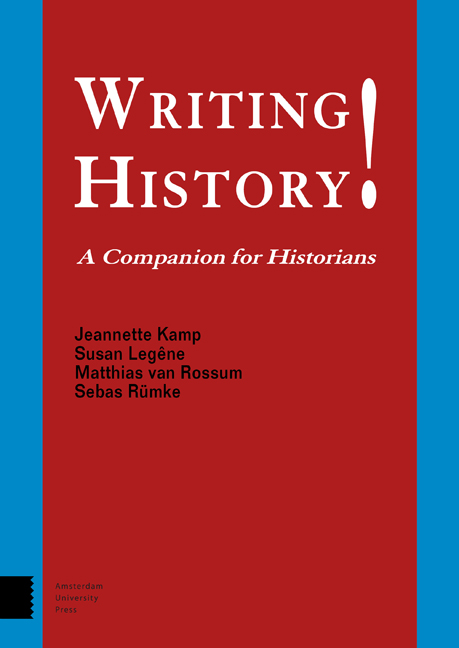Book contents
- Frontmatter
- Contents
- Introduction
- Structure of the Book
- 1 Historical Research: The Importance of the Research Question
- 2 The Building Blocks of the Historical Method
- 3 Applying the Historical Method
- 4 Writing History: Narrative and Argument
- 5 Presentation and Historical Debate
- 6 A Historian – Now What?
- Appendices
- I Guidelines for Notes
- II Other Styles of Notes
- Acknowledgements
- Index
5 - Presentation and Historical Debate
- Frontmatter
- Contents
- Introduction
- Structure of the Book
- 1 Historical Research: The Importance of the Research Question
- 2 The Building Blocks of the Historical Method
- 3 Applying the Historical Method
- 4 Writing History: Narrative and Argument
- 5 Presentation and Historical Debate
- 6 A Historian – Now What?
- Appendices
- I Guidelines for Notes
- II Other Styles of Notes
- Acknowledgements
- Index
Summary
So far, the emphasis has been on writing history, but as we argued in Chapter 1, knowledge and insights into history are also advanced through discussions about the past. Historians are active listeners: they look around them, relate to those who have something to tell them, and respond with questions and points of view. Moreover, they are also used to presenting things themselves. You will notice how teachers enjoy working with a group of students and exploring a problem in more depth, but good teachers are also good speakers. They present a historical narrative with a beginning and an end in which unavoidably they place their own emphases or make their own selection by enlarging or omitting certain developments or events. No teacher just parrots a history book; depending on their audience, the narrative takes the form of an ongoing argument. This aspect of the discipline – talking about history and exchanging ideas about writing history – is part of the historian's training. Reports, papers, lectures, or posters are the four forms of oral presentation that we shall discuss below.
Form and style
The most important message of this chapter is that oral presentations are not one-way affairs. Such forms of communication and debate are excellent opportunities to exchange ideas with others and to obtain advice and comments that can then be used, either individually or as a group, to formulate new ideas. Talking about history is at the heart of the discipline.
From working paper to poster presentation
Oral presentations can be found in many forms, and we will briefly discuss a few of them. A working paper is an oral presentation for a tutorial group, prepared following a clear assignment. By a paper, we usually mean a written version of a lecture (paper presentation) given at a seminar, symposium, or conference. A paper often has the same length as an article in a journal (between 6,000 and 12,000 words including the bibliography and source references). For an oral presentation, this written argument is usually reduced to 15 to 20 minutes, or 2,000 to 2,700 words. A lecture can be just about anything: one rule of thumb is that the audience loses concentration after 50 minutes or so.
- Type
- Chapter
- Information
- Writing History!A Companion for Historians, pp. 111 - 122Publisher: Amsterdam University PressPrint publication year: 2018



